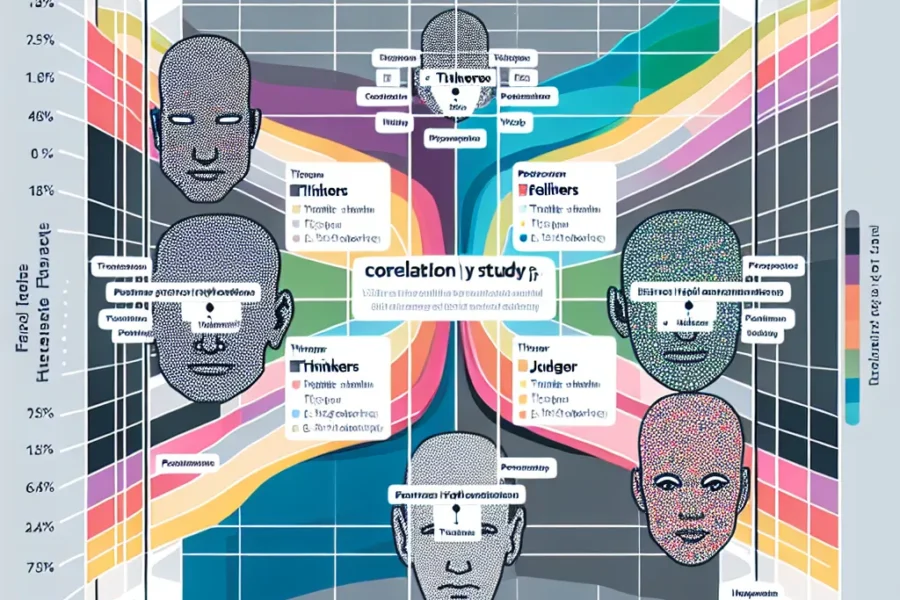The digital age has revolutionized the way we communicate, work, and live. With the advent of smartphones, social media, and various online platforms, technology has become an integral part of our daily lives. This pervasive influence extends beyond practical convenience, leading to significant impacts on our personalities and the very fabric of our character. As we navigate the complexities of the digital world, it is essential to understand how technology shapes who we are.
Personality, the unique and consistent pattern of thinking, feeling, and behaving that defines an individual, is no longer just a product of genetics and real-world social interactions. The digital environment now plays a critical role in character development, influencing how we express ourselves, interact with others, and form our self-identity.
One of the most conspicuous ways technology has influenced personality is through the phenomenon of social media. Platforms like Facebook, Twitter, Instagram, and LinkedIn offer individuals a stage to present themselves to the world. This self-presentation is often carefully curated, allowing people to highlight aspects of their personality that they wish to emphasize. Through likes, shares, and comments, social media interactions provide immediate feedback and validation, which can affect one’s self-esteem and sense of self-worth.
These platforms also shape our social behavior by expanding our social circles beyond geographical boundaries. We are now able to connect with a diverse range of individuals, exposing us to different cultures, opinions, and lifestyles. This exposure has the potential to foster empathy, open-mindedness, and adaptability in our characters. However, it can also lead to the echo chamber effect, where we predominantly interact with like-minded individuals, reinforcing our existing beliefs and potentially limiting personal growth.
Another aspect to consider is the paradox of connectedness. While technology facilitates constant communication and connectivity, it can also lead to a sense of isolation and loneliness. The digital age has introduced new forms of interaction that often lack the depth and emotional resonance of face-to-face conversations. The absence of non-verbal cues and physical presence can make interactions feel impersonal, potentially diminishing our ability to forge deep, meaningful relationships.
Moreover, the ease of access to information and the rapid pace of digital communication have contributed to decreased attention spans and a need for instant gratification. This shift affects our patience, perseverance, and the way we manage tasks. Being constantly bombarded with notifications and information can lead to multitasking, which, while seemingly productive, often detracts from our ability to focus and engage in reflective thought.
The digital age also plays a role in shaping our problem-solving skills and critical thinking. With access to vast repositories of information at our fingertips, the need to retain knowledge has decreased; instead, the ability to navigate, filter, and evaluate information has become more crucial. This change potentially influences our intellectual curiosity and the way we approach learning and challenges.
Gaming and virtual reality are other digital realms that have implications for personality development. These immersive environments provide users with the opportunity to experiment with different identities, play out various scenarios, and develop skills that may transfer to real-life situations. Through gaming, individuals can explore facets of their character in a low-risk setting, which can promote traits such as strategic thinking, teamwork, and perseverance.
Furthermore, the anonymity and perceived detachment provided by the digital world can result in a disconnect between one’s online and offline behaviors. This divide can encourage a lack of accountability, allowing for the expression of negative traits, such as cyberbullying or trolling, which might be suppressed in face-to-face interactions. Recognizing the permanence and real-world consequences of our online actions is crucial in maintaining a congruent and principled character.
As technology continues to advance, artificial intelligence (AI) and algorithms increasingly curate the content we consume. The personalization of our digital experiences reinforces our preferences and behaviors, potentially narrowing our perspectives and influencing our decision-making. We must remain vigilant and critical of the sources and nature of the digital content we engage with to ensure it enriches rather than confines our personalities.
Privacy concerns also come to the forefront in the digital age, as personal data becomes a commodity. Our digital footprints can reveal much about our personalities, preferences, and behaviors. Navigating issues of privacy requires discernment and self-awareness, qualities essential for character integrity in a world where oversharing can become the norm.
Moreover, the workplace has been dramatically transformed by technology, affecting how we build our professional personas. Remote work, digital collaboration tools, and project management software reshape how we interact with colleagues, collaborate on projects, and manage our careers. The ability to adapt to these technological shifts demonstrates flexibility and resourcefulness, traits that are highly valued in today’s workforce.
It is clear that technology’s influence on personality is multifaceted and complex. As individuals, it is crucial to be mindful of how we engage with the digital world. It’s important to strike a balance—leveraging technology to enhance our personalities while retaining the core human values that define our character. Regular digital detoxes, mindful social media use, engaging in face-to-face interactions, and continuous personal reflection are strategies that can help us maintain control over our personal development.
To conclude, the digital age has undoubtedly reshaped the landscape of personality development. Technology, while powerful and transformative, is a tool that should complement, not dictate, our character evolution. By remaining cognizant of how tech interactions shape our behavior and values, we can navigate the digital age with intention, ensuring that our personalities continue to grow in ways that are authentic, positive, and true to ourselves. As we move further into an era of digital immersion, embracing the changes while holding onto our fundamental human traits will be the key to thriving in a technology-driven world.



Leave a Comment